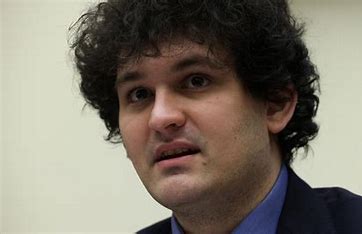The rise and fall of Sam Bankman-Fried, once hailed as a crypto king and now facing a significant prison sentence, epitomizes the volatility and risks inherent in the world of cryptocurrency. Just two years ago, Bankman-Fried was celebrated for his entrepreneurial prowess and philanthropic endeavors, basking in the limelight of his multi-million-dollar penthouse and hobnobbing with influential figures worldwide.
However, his fortunes took a dramatic turn when he was convicted of financial crimes related to the collapse of his crypto exchange, FTX. Accused of orchestrating one of the largest financial frauds in U.S. history, Bankman-Fried stands accused of using customer funds to fuel his extravagant lifestyle and pursue personal and political ambitions.
Federal prosecutors have painted a damning picture of Bankman-Fried, portraying him as a greedy and hubristic figure who exploited others for his own gain. They have recommended a lengthy prison sentence, citing the risk of future fraud if he were to be released.
In contrast, Bankman-Fried’s defense team has emphasized his remorse, charitable works, and autism diagnosis in advocating for a more lenient sentence. They argue that he still has much to offer society and that any losses incurred by customers and investors will be recouped.
The upcoming sentencing hearing marks the culmination of Bankman-Fried’s rapid rise and fall from grace. Once hailed as a visionary leader in the crypto world, he now faces the prospect of a lengthy prison term, a stark reminder of the risks and consequences associated with financial misconduct in the digital age.
The conclusion of Sam Bankman-Fried’s trial has brought forth a flurry of impassioned pleas and contrasting narratives as the court prepares to hand down a sentence. During the trial, Bankman-Fried’s defense rested on his denial of committing fraud, despite testimonies from former associates implicating him in criminal activities. His testimony, marked by repeated assertions of not recalling specifics, left a lasting impression on the jurors.
In the lead-up to sentencing, supporters of Bankman-Fried have rallied behind him, highlighting his struggles with depression, autism, and anhedonia—a condition that robs one of the ability to experience happiness. Letters to the judge, penned by individuals ranging from his mother to an ex-police officer, paint a picture of a compassionate and principled individual who has sought to make positive contributions to society, even in the face of personal adversity.
However, prosecutors have taken a starkly different stance, likening Bankman-Fried’s actions to those of infamous white-collar criminals like Bernie Madoff. They argue that his alleged $10 billion fraud has had far-reaching consequences, impacting tens of thousands of victims worldwide. While acknowledging that Madoff’s financial losses were higher, they emphasize that Bankman-Fried’s fraud has had a broader impact, resonating across borders and leaving a trail of devastation in its wake.
As the court deliberates on the appropriate sentence, the debate rages on about the magnitude of Bankman-Fried’s crimes and the extent of the restitution owed to his victims. While FTX’s current CEO assures that customers will be repaid the value of their claims, the enduring financial and emotional toll of Bankman-Fried’s actions remains a point of contention. As the sentencing approaches, the fate of one of crypto’s most prominent figures hangs in the balance, with profound implications for the future of the industry and the pursuit of justice.
